As the first sanctioned film from the Bowie estate featuring some never before released audio and video recordings, Moonage Daydream, is a cinematic odyssey exploring David Bowie’s creative, spiritual, and musical journey.
From enigmatic Rock alien to Pop icon, David Bowie, whose real name was David Jones, was born in South London’s town of Brixton. The work of visionary Filmmaker Brett Morgen (Cobain: Chicago 10 2007, Montage of Heck 2015), and released globally as of September 16, 2022 thanks to Neon, Moonage Daydream is the result of the great void Bowie’s passing has left. This latest fulfillment comes from Morgen’s unprecedented access to Bowie’s personal archives. That in mind, Moonage Daydream gives a look inside the artistic genius of Bowie as musician, painter, Broadway actor, expressionist and now legend. It provides a colliding collection of images and sounds of David Bowie throughout his entire career.
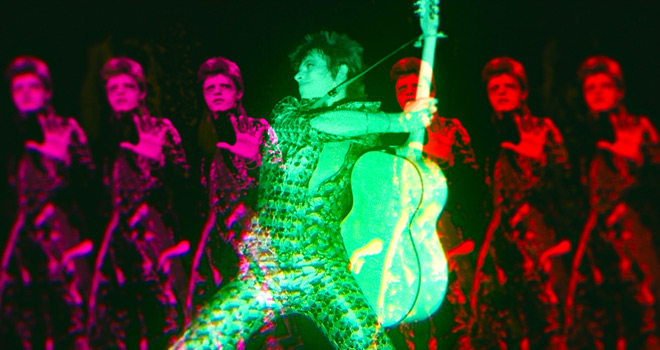
Bowie enters the screen posing in a bright turquoise suit with flaming red hair looking right into the eyes of the viewer. It is the first intimate look at a live Bowie up close, with arms folded, and dual colored eyes, that you cannot help notice how one pupil is more dilated than the other. Catapulting with live concert footage of Ziggy Stardust, you are launched into a boundless three-dimensional journey of Bowie’s evolution, musical changes, challenges and growth along with his various personas as; Ziggy, Aladdin Sane and the Thin White Duke.
Bowie gives the only narrative throughout the film from beginning to end. At times, there are difficult battles for the senses between the interview audio and background music, leaving the viewer to fight through the spectrum of sound and images in order to grasp a singular message or point. However, Moonage Daydream succeeds in creating a greater appreciation for Bowie as an artist by showcasing all his creations and innovations from his photography, to his paintings and art. All this said, for many, the live concert footage could easily be viewed as the best part of the film. A riveting performance of “Heroes,” recorded in London, is a high point. It is an mesmerizing delivery captured perfectly, where one cannot help feel the intensity of each note and every word of Bowie as Ziggy Stardust.
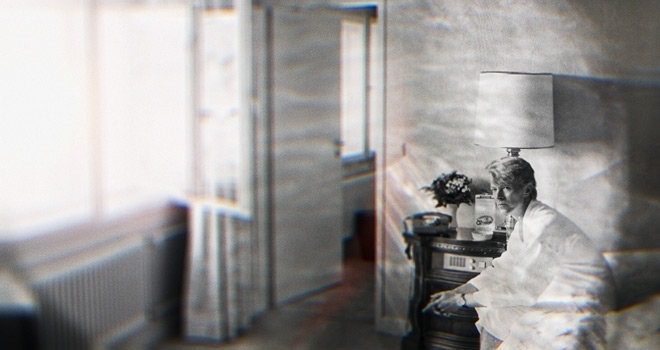
Bowie was Rock’s ultimate master of reinvention from the first moment he heard Rock music as a child and couldn’t understand the lyrics but was able to feel the meaning of the song. From London, to New York, to Los Angeles to other parts of the world, he continually required change to thrive and create. Of course there is the ’70s era, where he speaks at an astronomically high rate of speed, but you cannot help but hear Bowie bubbling with brilliance and a universal vision of a greater force beyond. From “Buddhism on Monday to Nietzche on Friday” Bowie explains his spiritual influences on his work. From alien to alienation, you also learn of his “ordinary childhood” where he “never liked children’s things very much” and the close relationship with his half brother who introduced him to albums and later suffered from schizophrenia.
As for his writing technique, Bowie explains how he would write down three or four subject matters and cut it up to make one song. He set out to create a new musical language when he traveled to West Berlin, continuing his desire to stay in a state of loneliness and solitude. He reveals his insecurities such as, “I do things to prove I had emotional substance when in fact I didn’t.” He also shares his visions in staying in isolation “instead of receiving the world” to “create a micro world inside the mind” and the mistake of civilization in their “refusal to accept chaos.”
Like a fine wine, Bowie looks and sounds better with age as he creates new channels of emotive thought with high tech music and great hair and style. From the Glass Spider tour he lays the groundwork for theatrical tours and secures a Pepsi deal. Although recordings of some of his biggest hit songs like “Rebel Rebel,” “Fame,” ” Ashes to Ashes,” and even “Under Pressure” with Queen are absent, an impressive series of clips of Bowie uniquely dancing and moving to “Let’s Dance” becomes the second most impressive segment of the film.
Overall, Bowie comes off mesmerizing and powerful and is still vital and as interesting as ever, with twenty-five studio albums, a gallery of paintings and being the first rock star to perform in a Broadway play.
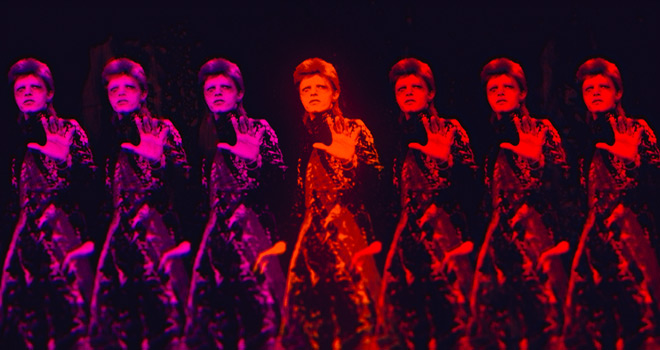
For someone who fought off love to remain artistically, spiritually and emotionally available to music and his creative process, Bowie finally admits to giving into love when he met his wife, Iman. He recalls it as “incredible.” We realize Bowie, who hated being in the middle of the road for anything, and never ceased to push his boundaries further, was able to finally find true happiness.
In the end, Moonage Daydream is an fulfilling and impressive work featuring the many movements, expressions, realms and incarnations of David Bowie. The film only lacks more live concert footage. But as art imitates life, we just may never get enough of David Bowie. That is why Cryptic Rock gives Moonage Daydream 4 out of 5 stars.
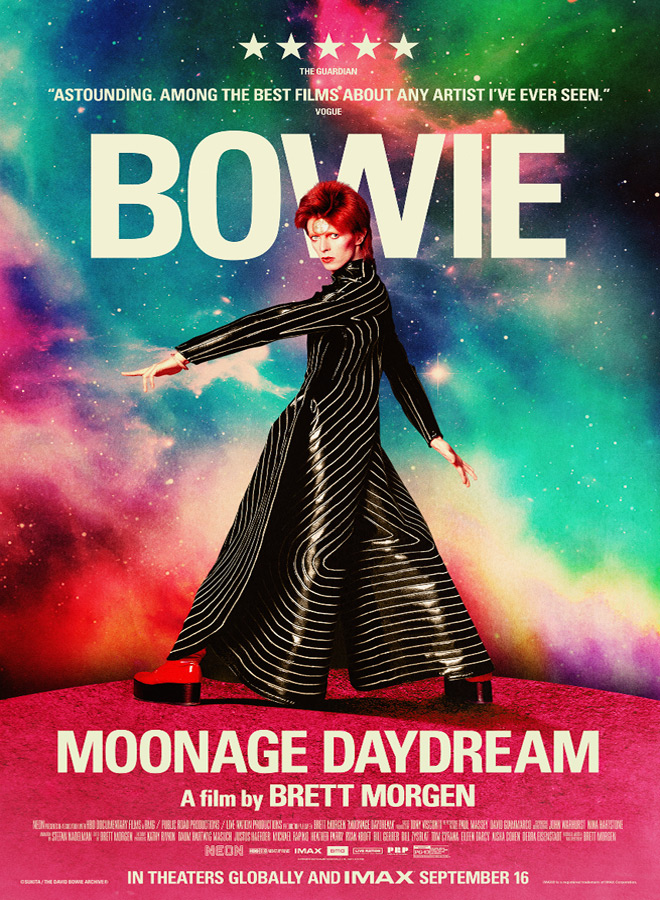


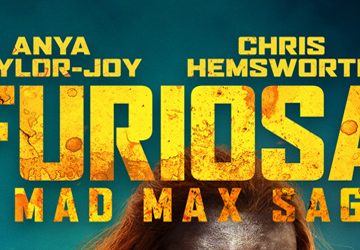


No comment